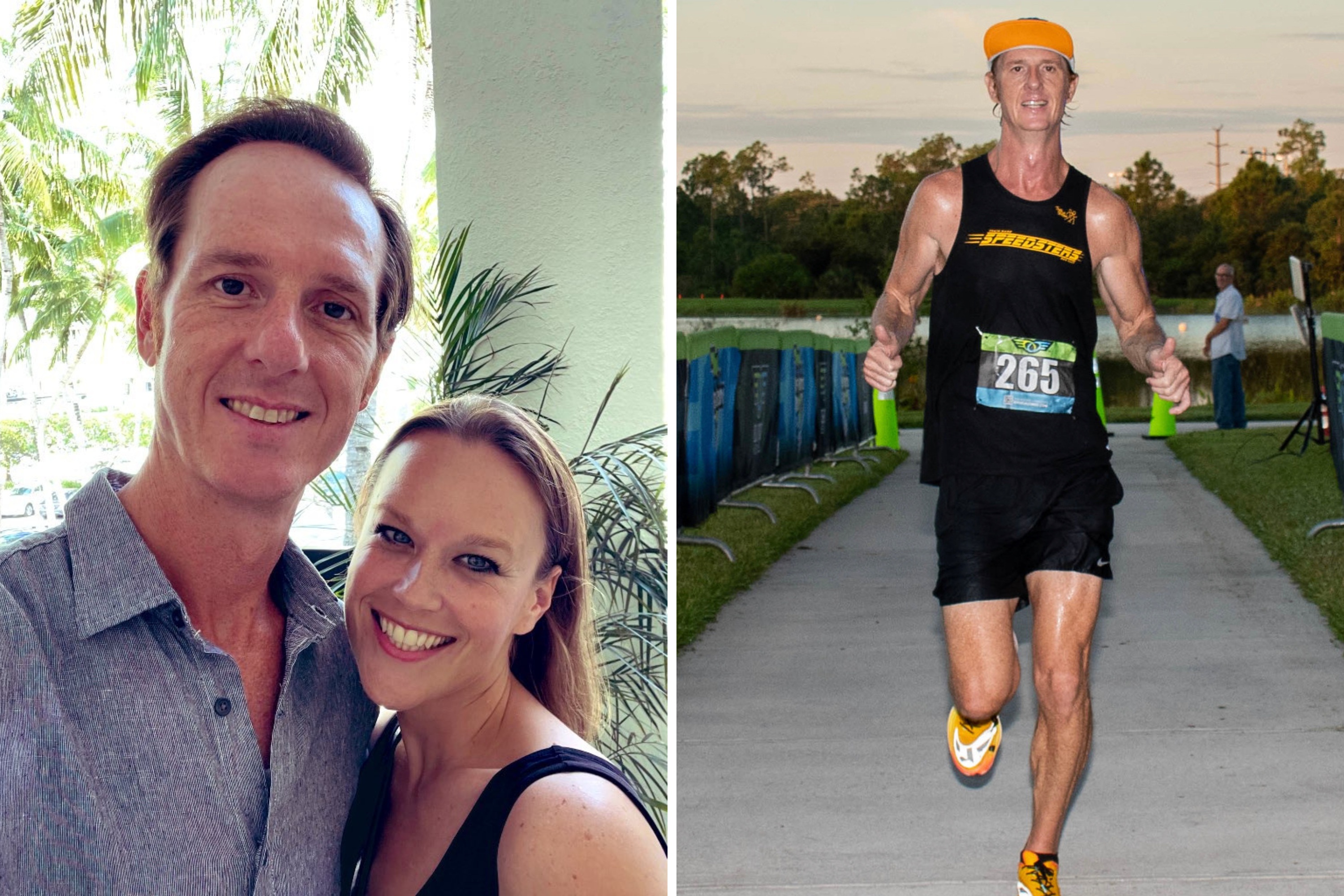
I TRAGICALLY LOST THE LOVE OF MY LIFE—ONE HABIT HELPED ME GRIEVE
Born and raised in Kansas City, I met my wife, Erin, on a whim at church when I was in my early twenties. From that day forward, we spent our lives together traveling, moving city to city, including New York, where we pursued our passions. For Erin, it was under the lights of the Broadway stage and for me, it was joining the Harlem Run Club and entering competitive races.
As we were looking to write our next chapter, we set our sights on a slower pace with a warmer climate and found ourselves in Florida. After visiting Erin's parents who had relocated to Babcock Ranch, a solar-powered town just outside Ft. Myers, we were intrigued by its unique neighborhoods, tight-knit and diverse community, and sustainability components. Even more exciting, its plethora of trails, greenspaces, and pathways were perfect for my active lifestyle.
We were at the pinnacle of our lives, and relationship, when tragedy struck six months into our new life in Florida. Erin was late arriving home one night and after calling her several times, I grew concerned and decided to go out looking for her.
While driving around, I received a phone call I never thought would happen—Erin had been in a severe car accident and was in the hospital. As I headed to Gulf Coast Hospital, I drove by the scene of the crash and saw her car flipped on the side of the road. I rushed to see her.
When I arrived, the medical providers informed me Erin was transferred to the ICU and by the next morning, I received the horrific news that my wife would likely soon pass away due to haemorrhaging in the brain stem.
I was in the hospital room with Erin's parents and brother when she passed on June 16 at 8:53 p.m. It was the biggest shock of my life—I couldn't believe it. For the first few months, I was just numb and wept. It was the biggest gut punch of my life. Honestly, I don't think I'll ever go through anything that hard again.
I was appreciative of the outpour of support from my new neighbors at Babcock Ranch, but when it came time to be alone, I relied on my hobby of running. I leaned into being outdoors to use the sunlight as part of my healing process. I began running daily and to this day, I use this time to clear my head and think through things, it became my time to problem-solve.
I don't listen to music often while I run so the silence forced me to grieve, think about the situation and reflect on our life together. I've learned that you don't get to create new memories together—you rely on the past ones you've made and that brings me joy.
Running has allowed me to release my emotions and the last thing I'd want to do is suppress the grief as it's part of the healing process. While I find music distracting when running, on the other hand, I'll throw on show tunes when I'm home cleaning as one of the small ways I honor Erin's spirit as a broadway music fan.
In hindsight, running helped me see the silver lining, which was that at the time, Erin was living her life to the fullest and doing what she loved most—she was one week away from starring in a local production. She was so happy and beautiful, and that is the picture I have preserved of her in my memory forever.
Continuing my journey through grief, I'm currently road-tripping across the U.S. in an RV to compete in a variety of ultra marathons where I'll rack up over 300 miles.
My races include the Elden Crest 38 miler in Flagstaff, AZ, the 100-miler Bighorn Trail Run in Dayton, WY, the Bigfoot 40 Mile in Mt. St. Helens, the Leadville Trail 100 Run in Leadville, CO and ending with the Chicago Marathon this October. To date, the 100-miler Bighorn Trail Run was the longest race I've ever competed in.
Along with running, I'm dedicating my time on the road to work on my book about my journey through grief and how running has served as an outlet. Grief is interesting and when you read other people's stories you can always take different pieces from their experiences.
Every person's story is different so I'm always careful not to compare mine to anyone else's. What I've learned is that you don't move on, you learn to move forward and to be grateful for the life you have because you never know when it can be taken away.
I live by a quote I heard by Steven Colbert who spoke out about grief: "It's a gift to exist, and with existence comes suffering. There's no escaping that. If you're grateful for your life, then you have to be grateful for all of it."
To me, this means that you must be grateful for the good and the bad. I'm grateful for my life—for the 20 years I spent with her, she will always be a part of my life no matter what. I'm grateful that I got to know her, and that the universe lined us up to meet.
Josh Coleman is runner, and a Partner Investor for ELUX.
All views expressed are the author's own.
Do you have a unique experience or personal story to share? See our Reader Submissions Guide and then email the My Turn team at [email protected].
2024-06-26T11:37:04Z dg43tfdfdgfd